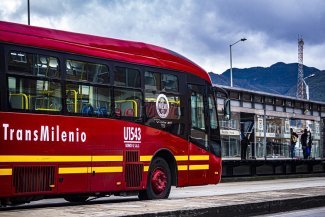It started earlier this year as a campaign to remove the statue of colonialist Cecil Rhodes from the University of Cape Town (UCT), but in recent months South Africa’s universities have become a battleground for the quest for post-apartheid racial and economic justice.
This October, the #RhodesMustFall hashtag was replaced with #FeesMustFall and #EndOutsourcing as university students and mostly non-academic staff joined forces across the country to stop a proposed hike in tuition fees of between 10 and 12 per cent.
They were also demanding an end to the outsourcing of cleaning, maintenance, transport, catering and security, which has left the poorest workers on South Africa’s campuses with longer hours and no benefits.
As a result of weeks of massive protests, at the end of October the government backed down and President Jacob Zuma announced that there would be no increase in tuition fees in 2016. As for outsourcing, both Wits University and UCT have agreed to end the outsourcing of all staff, but on other campuses the struggle continues.
This synthesising of these two protests is due to the common financial struggles faced by many students and workers. While university degrees cost an average of 30,000 rand (approximately US$2090) per year, some 53 per cent of South Africans live below the poverty line of US$2 per day.
But last month’s highly organised national protests went beyond class and political differences, and featured notable leadership roles from young black women such as Wits University Student Representative Council President Nompendulo Mkhatshwa who became one of the most prominent voices of the protests.
“Outsourcing is as much an injury to students as it is to workers, the same goes for fees,” says Kealeboga Rumaru, a 22-year-old honours student in Gender and Transformation at UCT and a member of the #RhodesMustFall movement.
The workers’ fight at UCT had been ongoing for years but it gained traction back in March when the student movement aligned with their cause.
The agreement between UCT management and the National Education, Health and Allied Workers’ Union, exemplified by the Vice-Chancellor Max Price agreeing “in principle” to insourcing, came just five days after the students had won the fee rollback this October. Price said that UCT, South Africa’s most costly university in terms of fees, would find the money “from somewhere”, but this remains to be seen.
Of UCT’s outsourcing victory, Rumaru says: “It has taken 15 years of ‘no, it’s impossible, it’s too expensive, it’s not feasible’, to a collective victory that was achievable through unity, trust and solidarity.”
Insourcing v Outsourcing
The protest movement combined sit-ins and demonstrations with online campaigning. To highlight the needs of the workers, the Wits Fees Must Fall movement released a video of a worker who clearly states the impact of outsourcing.
Like universities across the country, hundreds of workers at Wits have been retrenched then rehired by contractors. Despite doing the same work they have always done, they lost crucial benefits such as medical aid and pensions, as well as the right to have their children to attend Wits for free, or access to the libraries and computers.
Now that UCT has promised to phase out outsourcing, the question is when will it happen. Not fast enough for Fowzia Brown, a cleaner at UCT who works for one of the outsourcing companies. “If I was employed by the university, I would have medical aid, a pension. We are told that what the company makes per person contracted to work for the university is confidential. But we all know it’s a lot. We could be getting R10,000 a month (US$700) plus those benefits.”
Audrey Groenewaldt, who is also a cleaner outsourced by the same company, has worked at UCT for 14 years. “I receive R4,700 (US$330) after deductions. We only get 15 days of leave per year.
“It took so many years just to fight for resources. With this company we use cheaper chemicals, we have no medical aid, and if you are late, they deduct wages. There’s no protection of the workers,” she says.
“I joined this protest because poverty hurts. I feel trapped,” says a cleaner who wishes to remain anonymous. “How can I work for so many years and not get decent wages? My daughter graduated in 2010, she’s 23-years-old but she’s just working part-time. I wish she could go to university, but I can’t afford it. There are many things I cannot afford at this level.”
At the University of Johannesburg (UJ), where the fight against outsourcing continues, students and workers have been met with fierce resistance from their employers and have also faced police action.
Several universities have been the site of violent demonstrations in recent days; in one example a night vigil attended by students from Wits, UJ and Tshwane University of Technology ended when police fired rubber bullets and made numerous arrests.
Similar scenes have also played out at the University of the Western Cape and the Cape Peninsula University of Technology for weeks now, with the breakdown of negotiations resulting in the closing of both institutions.









